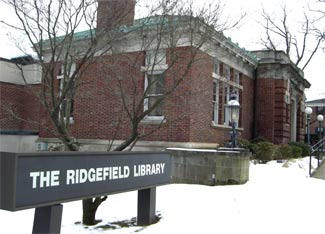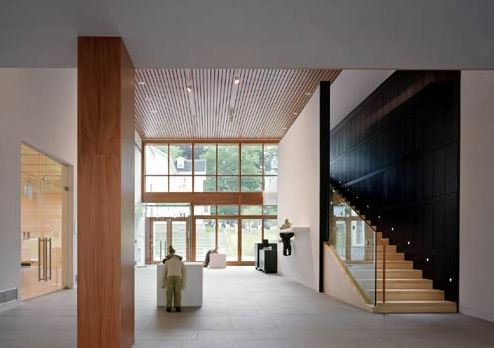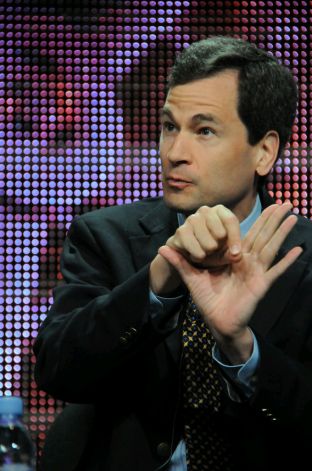|
|
||
|
Pro Tools
FILMFESTIVALS | 24/7 world wide coverageWelcome ! Enjoy the best of both worlds: Film & Festival News, exploring the best of the film festivals community. Launched in 1995, relentlessly connecting films to festivals, documenting and promoting festivals worldwide. Working on an upgrade soon. For collaboration, editorial contributions, or publicity, please send us an email here. User login |
Jazz Beats At MoMA Film ProgramFriday, May 23-----If you are a lover of film (guilty) and also a lover of jazz (guilty again), then you are destined for movie and musical heaven at the on-going film series Jazz Score at the Museum of Modern Art. Starting last month, this unique retrospective will showcase 50 feature films and a selection of shorts that meld the power of jazz and the moving image. The series celebrates well-known and obscure jazz scores composed for films from the 1950s to the present, with a particular emphasis on the rich and largely unexplored relationship between postwar filmmakers and jazz composers, arrangers, and musicians. The series began in high style on April 17 with the rare screening of Mickey One (1965), which was introduced by its director Arthur Penn. The film, a seminal film that anticipated the anti-hero myth and featured a terrific performance by a young Warren Beatty, featured the virtuostic sax stylings of jazz legend Stan Getz. Alex North’s Academy Award–nominated score for Elia Kazan’s A Streetcar Named Desire (1951) is generally credited with opening up jazz scoring to a new generation of composers, including Elmer Bernstein, Duke Ellington, Bernard Herrmann, Quincy Jones, Henry Mancini, and Lalo Schifrin. Significantly, this development coincided with the breakup of the Hollywood studio system, and with the commercial and artistic success of independent film directors like John Cassavetes (Shadows, 1959, and Too Late Blues, 1961), Shirley Clarke (The Connection, 1962, and The Cool World, 1964), Robert Frank and Alfred Leslie (Pull My Daisy, 1959), and Herbert Danska (Sweet Love, Bitter, 1968). Those films experimented not only with dramatic themes and film genres, but also with more improvisational forms of postwar jazz like hard bop, free jazz, modal jazz, and Afro-Cuban. This was equally true of New Wave filmmakers and a younger generation of European and Japanese directors in the 1950s and 1960s—including Bernardo Bertolucci, Jean-Luc Godard, Jørgen Leth, American expatriate Joseph Losey, Louis Malle, Mikio Naruse, Roman Polanski, Jerzy Skolimowski, and Roger Vadim—who enlisted such seminal artists as Gato Barbieri, Miles Davis, Dizzy Gillespie, Krzysztof Komeda, John Lewis and the Modern Jazz Quartet, Thelonious Monk, Bud Powell, Tôru Takemitsu, and others to compose jazz scores that would reinforce or provide a counterpoint to their disjointed imagery. Jazz continues to be used in diverse ways in contemporary cinema, whether to evoke a writer’s paranoid fantasies in David Cronenberg’s Naked Lunch (1991, music by Howard Shore and Ornette Coleman); or the tragic devastation of New Orleans, the city that gave birth to jazz itself, in Spike Lee’s When the Levees Broke: A Requiem in Four Acts (2006, music by Terence Blanchard). These collaborations, and others such as those between Clint Eastwood and Jerry Fielding, and Jim Jarmusch and John Lurie, are featured in the film retrospective. This weekend, the series is presenting several seminal films: Blow-Up (1966) is the quintessential swinging-London pic of the 1960s, and represented Italian director Michaelangelo Antonioni's English-languge debut. Aside from its elliptical story, the film features a superb jazz score by Herbie Hancock, whose jazz cred remains incredibly high with his win this year of a Grammy Award for Best Album of the Year. Is there a film that captures the grittiness and urban beat of New York City better than Sweet Smell of Success (1957)? A box office failure in its initial release and later celebrated as one of film noir's greatest treasures, the film, starring Burt Lancaster as a conniving gossip columnist and Tony Curtis as the "cookie filled with arsenic" press agent, features an original score by one of the great film composers, Elmer Bernstein, as played with pulsating rhythm by Chico Hamilton and his quintet. As Lancaster proclaims of his beloved Big Apple.... "I love this dirty town". Another 1950s film noir classic that was shunned on its first release but has since become a contemporary classic is Touch of Evil (1958), by the brilliant former "enfant terrible" Orson Welles. The rotund director gave himself a juicy part as the corrupt sherrif of a Texas bordertown who tries to frame his Mexican contemporary, played by an unlikely Charlton Heston. The jazz score is by the great Henry Mancini, who combined Latin Brass, Afro-Cuban Jazz and other urban musical themes to offer a cacophony of sounds that give the film an added layer of grit and the smell of corruption. The Jazz Score series continues through September 15, so there are many highlights to come as New York enters its sultry summer months. For more information on this and other film programs at the Museum of Modern Art, visit the website: www.moma.org Sandy Mandelberger, Film New York Editor 23.05.2008 | FilmNewYork's blog Cat. : Academy Award African American music African-American culture Alex North Alfred Leslie Arthur Penn Bernard Herrmann Bernardo Bertolucci Bud Powell Burt Lancaster Charlton Heston Chico Hamilton Chico Hamilton Clint Eastwood David Cronenberg Duke Ellington Duke Ellington Elia Kazan Elmer Bernstein Elmer Bernstein Entertainment Entertainment Film New York Film noir Grammy Award Henry Mancini Henry Mancini Herbert Danska Herbie Hancock Howard Shore Human Interest Human Interest Jazz Jean-Luc Godard Jerry Fielding Jerzy Skolimowski Jim Jarmusch John Cassavetes John Lewis John Lurie Joseph Losey Lalo Schifrin London Louis Malle Michaelangelo Antonioni Mikio Naruse Miles Davis Museum of Modern Art Music New Orleans New York New York City Ornette Coleman Orson Welles Quincy Jones Robert Frank Roger Vadim Roman Polanski Sandy Mandelberger Savoy Records artists Shirley Clarke Spike Lee Stan Getz Sweet Smell of Success Technology Technology Terence Blanchard Terence Blanchard Tony Curtis Warren Beatty FILM
|
LinksThe Bulletin Board > The Bulletin Board Blog Following News Interview with IFTA Chairman (AFM)
Interview with Cannes Marche du Film Director
Filmfestivals.com dailies live coverage from > Live from India
Useful links for the indies: > Big files transfer
+ SUBSCRIBE to the weekly Newsletter Deals+ Special offers and discounts from filmfestivals.com Selected fun offers
> Bonus Casino
User imagesAbout FilmNewYork Mandelberger Sandy Mandelberger Sandy (International Media Resources) The Ultimate Guide to the New York Film, Video and New Media Scene. View my profile Send me a message The EditorUser contributions |





























